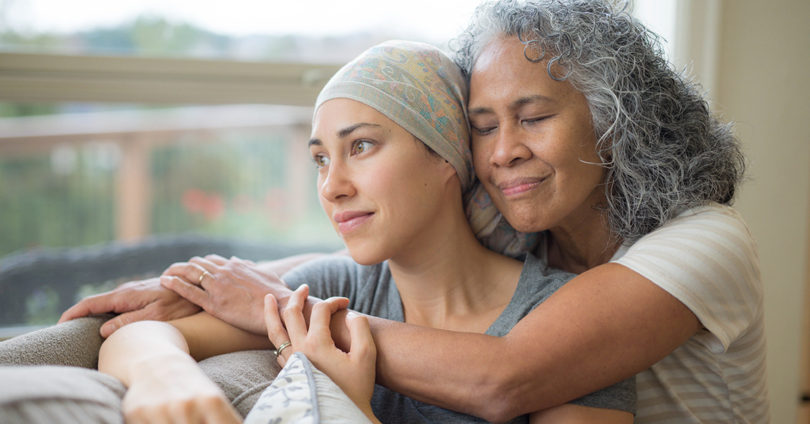For younger adults, facing a cancer diagnosis can be particularly isolating, says Denise Bilodeau, a social worker in the Odette Cancer Program.
“There can be a real sense of loss for a younger adult facing cancer,” she says. People under age 40 are typically considered younger adults in the cancer system.
A younger adult might be in post-secondary education or at a new job, have a young family or hope to start one, or may be without the financial nest egg built up through a long career.
Denise tries to offer support for younger adults in a way that’s unique to their needs.
“The loss of identity, changes in sexual health, body image, threats to fertility, financial challenges, childcare or parenting — these challenges are different for a younger adult,” she says.
Seek supports specific to your needs
Denise says to identify what you need and if that’s lacking from your hospital or care team.
“Your experience and your needs may be different than others, and you are absolutely justified in saying so,” Denise says. “Ask to be connected to the help or programs specific to your age or needs.”
Family dynamics will likely change
Regardless of your age, if your parents are in your life, there is a likelihood your relationship will be affected.
“Your parents will want to parent you, no matter how old you are now,” Denise said.
Even if you’ve left home or have a family of your own, your parent might return to their caregiving role, which you might welcome or might make you feel a loss of independence.
She said talking about this with your family might help set you all onto the right path. It may help to set some boundaries and let them know when you need some space.
Your friends might need guidance, too
At every age, but particularly for younger adults, friendships can be affected by a cancer diagnosis, Denise said.
“Your friends might feel frightened and intimidated, and they might not know what to say or do,” she said. “It’s OK to educate your friends about your cancer and what they can say or do to help you.”
Still, some people might pull away.
“There are many active online on in-person support communities for young people where you may find people who truly understand what you are going through.”
Resources:
https://www.youngadultcancer.ca/
https://www.colorectalcancercanada.com/
https://gildasclubtoronto.org/adult-programs/








